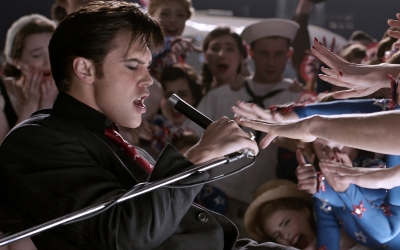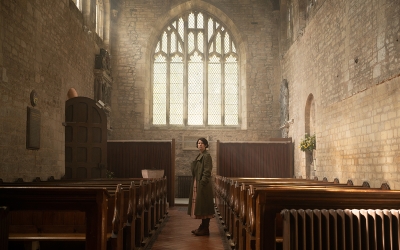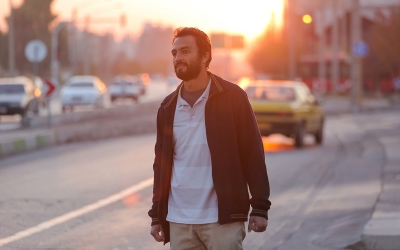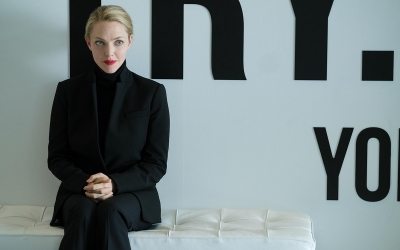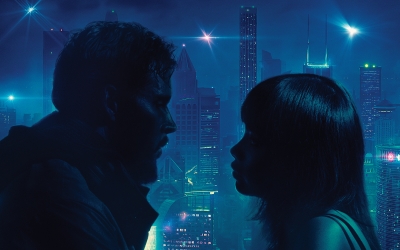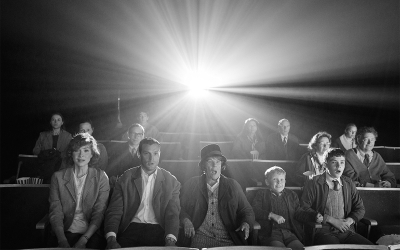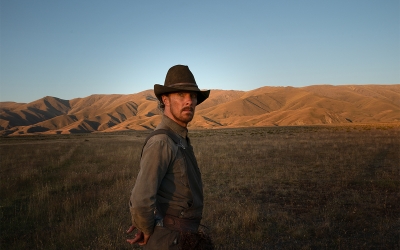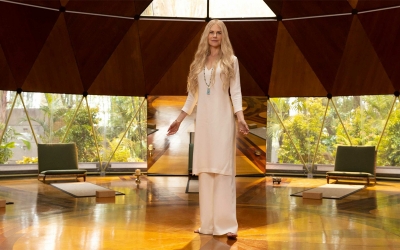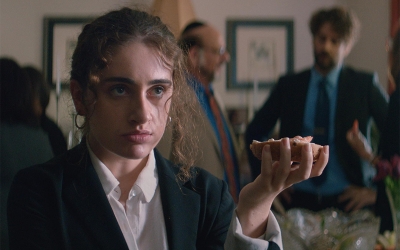Jordan Prosser
Crafting a biopic is a near-impossible act of curation; of the hundreds of thousands of hours that make up a person’s life, which two and a half will accurately sum up their entire existence? Some recent attempts, like the excellent Steve Jobs (2015) or the Judy Garland biopic Judy (2019), limit their slice of life to a handful of defining moments and allow the viewer to extrapolate from there ...
... (read more)The films of Alex Garland (The Beach, 28 Days Later, Sunshine, Ex Machina, Annihilation) all share a distinct feeling of descent – an almost gravitational pull towards madness, towards decay, towards a loss of self. His new film, the ingeniously titled but only half-realised Men, continues this tradition.
It stars Jessie Buckley (devastatingly good in Maggie Gyllenhaal’s The Lost Daughter, and equally committed here) as Harper ...
... (read more)Some directors leave their fingerprints on a finished product through a trademark visual style, a particular musical taste, or a recurring ensemble of actors. Others embody the notion that when something’s truly well made, the handiwork is invisible. Such is the case with Asghar Farhadi, two-time Oscar-winning writer and director of A Separation (2011) and The Salesman (2016), who continues to ride the crest of the Iranian New Wave with A Hero – meticulously studied, profoundly insightful, and expertly executed right through to its impeccable final frame.
... (read more)If there is a logical successor to the twentieth-century gangster epic, it may well be the modern-day high-stakes corporate drama. Both revolve around merciless protagonists operating by their own dubious moral code, amassing wealth and influence as they leave a trail of bodies (literal or figurative) in their wake. Instead of intimidation and assassination, our new corporate anti-heroes leverage powerful attorneys and hostile takeovers. Instead of doing business in the smoke-filled backrooms of family restaurants, they operate in biophilic, open-plan offices (and on the stock exchange). Instead of working outside capitalist structures, they bend it to their will. And instead of concealing their crimes and leading a double life, they are openly celebrated, sitting on boards and delivering TED talks.
... (read more)After a decade spent redefining Australian outback noir with Mystery Road (2013), Goldstone (2016), and their ABC TV offshoots, writer–director Ivan Sen turns his attention to a semi-futuristic Asian metropolis in Loveland, retaining his lean directorial focus while delving into even headier philosophical territory. His new film is a strange beast indeed – daring, beautiful, frequently confounding. Those expecting breakneck cyberpunk action will likely head home disappointed – the genre worlds Sen’s characters inhabit are usually more prison than playground – but those with the patience to indulge this alluring and moody experiment should find much to admire.
... (read more)On the sunny streets of Belfast in 1969, nine-year-old Buddy (Jude Hill) fights imaginary dragons with a wooden sword and a shield made from the lid of a garbage bin. When his Ma calls him home for tea, he races through the neighbourhood, bright-eyed and carefree. But the afternoon idyll is quickly shattered by a small army of Protestant rioters laying siege to the street, smashing windows and firebombing cars in a targeted attempt to weed out any remaining Catholic residents.
... (read more)After eighteen months of wayward blockbusters and couch-ready, pandemical streaming entertainment, Jane Campion’s The Power of the Dog arrives like a stiff shot of pure cinema. Adapted from Thomas Savage’s 1967 book of the same name, Campion’s film offers no quick thrills, no easy answers, no simple heroes, and no mercy for its inhabitants. It’s a rare beast in an industry increasingly split between shoestring-budget genre films and $200 million franchise toppers; a quintessential adult drama.
... (read more)Picture this: a taut, ninety-minute thriller featuring some of Hollywood’s biggest names, based on a bestseller from a literary big-hitter. A slow-burn mystery about a group of wealthy strangers, each with their own dark secrets and buried traumas, arriving at a boutique wellness spa for a ten-day retreat. Nicole Kidman starring as the enigmatic, ethereal Russian wellness guru Masha Dmitrichenko, who has specifically chosen these guests to carry out a series of risky experiments involving cutting-edge psychotherapy and mind-altering drugs. An hour and a half of rich character drama and suspense that builds to an intriguing philosophical twist. Now imagine that same story, stretched well beyond the longevity of its initial premise to a bloated eight-hour runtime, robbing it of coherent structure and narrative tension. An unwieldy hydra of tone and storytelling style. An exasperating parade of superficial soul-baring and perfunctory plot table-setting, leaving its exceptional cast treading water week in, week out. There you have Hulu’s recently concluded Nine Perfect Strangers, a show that epitomises the era of Peak TV while simultaneously embodying a compelling argument against it.
... (read more)With their forced solemnity and rigid formality, religious ceremonies have long been ripe for comic subversion – see Four Weddings and a Funeral, Death at a Funeral (the original and the American remake), This Is Where I Leave You, Six Feet Under, et al. – but Shiva Baby, a new indie comedy from American writer–director débutante Emma Seligman, gives the sub-genre a refreshing Millennial update. Set almost entirely at a shiva (the Jewish equivalent of a post-funeral wake), Shiva Baby depicts one (very bad) day in the life of college student Danielle, wonderfully played by rising comic star Rachel Sennott. We first meet Danielle mid-coitus with Max (Danny Deferrari), her ‘sugar daddy’ – an older man who forks over a handful of cash and an expensive bracelet in exchange for the time they spend together. Danielle is almost immediately summoned to the shiva in suburban New York. Her first question when she arrives is: ‘Mom, who died?
... (read more)Spoiler alert: at the end of Ken Kesey’s One Flew Over the Cuckoo’s Nest, Randle Patrick McMurphy is lobotomised. It’s a tragic defeat for a counter-culture hero and a barbaric victory for the institution housing him. The psychiatric facility is depicted as a prison, its residents the doomed inmates, and its head nurse, the villainous Nurse Ratched, the warden. In that story, madness is analogous to freedom, and the final image of Chief making his escape for Canada is a much-needed glimmer of resistance and hope.
... (read more)
